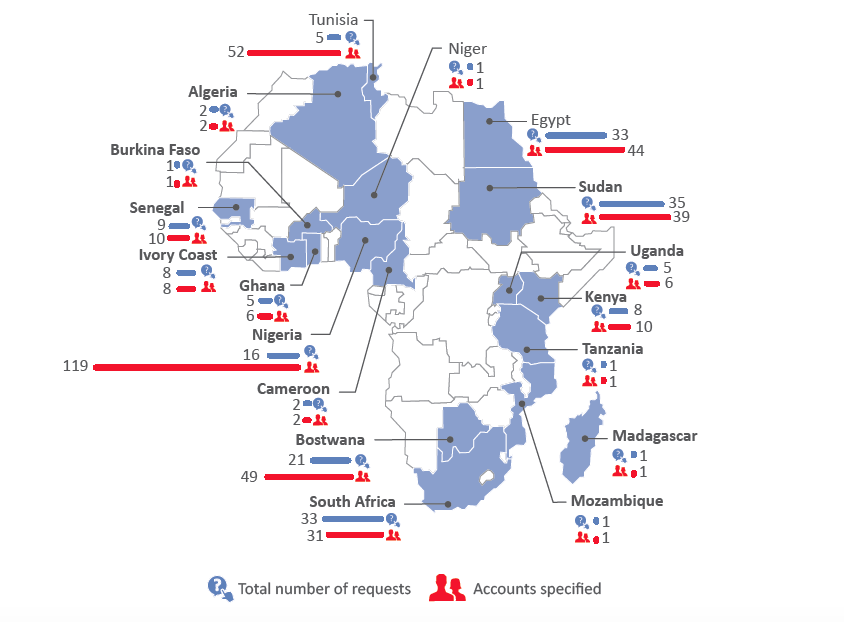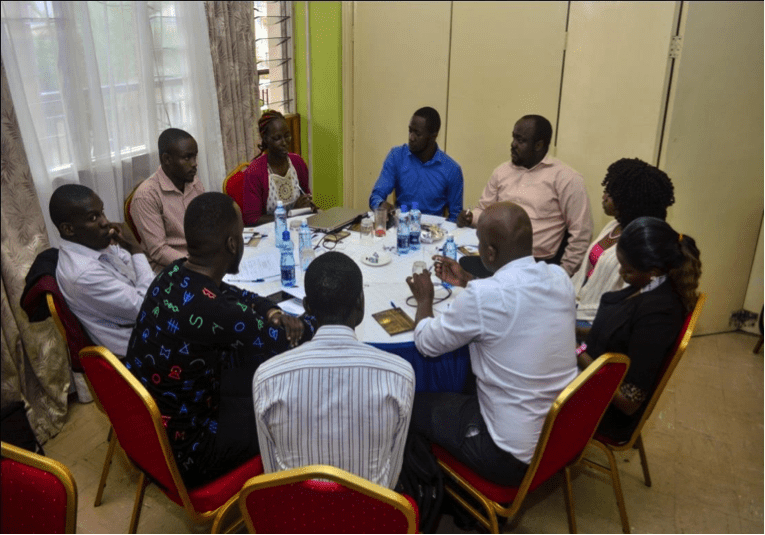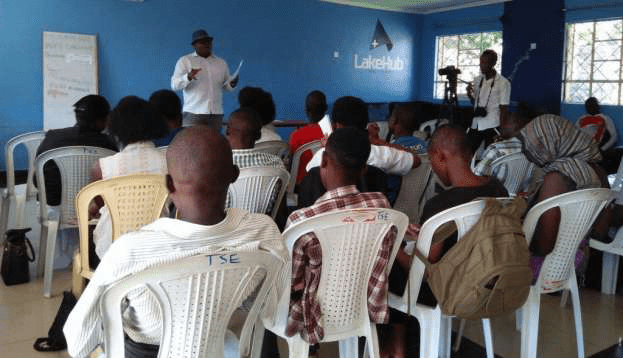Policy Brief |
The relationship between communications service providers, users and governments with regards to data protection, requests of user information and content take downs is increasingly taking centre stage in discussions around free, open and secure use of digital technologies.
In February 2017, Millicom issued its second Law Enforcement Disclosure Report. Millicom’s report is one of many by private companies aimed at promoting transparency and accountability, through periodically publishing reports detailing information on government requests for user data, content removals, and compliance with those requests.
Google is credited with being the first internet company to publish a transparency report back in 2009, followed by Twitter in 2012. Facebook and Yahoo have published reports since 2013. Vodafone and Orange were among the first telecommunications companies to publish transparency reports, both in 2014.
These reports have become vital to understanding censorship, surveillance and more importantly the commitment of service providers to protecting the privacy of their users and promoting freedom of expression online. Based on the reports alone, it remains unclear what the true extent of governments’ surveillance of citizens’ communications and censorship of content across the world is. Nonetheless, the reports indicate a growing trend among countries, including African governments, of requests for subscribers’ data and content removal.
On the social media front, from five African countries being listed by Facebook among those that requested users’ details in the first half of 2013, the number on the continent has grown to 18 as at the end of 2016. Meanwhile, requests to remove content from Google have also grown from only Libya in 2010 and 2011, to four African countries in 2016 alone. Twitter, which only received one user information request from South Sudan in 2012, has since gone on to receive requests from an additional four countries on the continent. The countries which have consistently made requests for user information to Google, Facebook and Twitter include South Africa, Nigeria, Sudan, Kenya and Egypt.
In telecommunications, figures are scanty as only four companies operating in Africa issue transparency reports – one of which, MTN, does not disclose any statistics while Vodafone’s extent of disclosure is limited due to legal provisions in some of its countries of operation that prohibit publishing of such information. Even then, user data requests from five African governments to Millicom have increased from 5,000 in 2015 to nearly 7,000 in 2016. Requests to Orange from the 20 African countries where it had operations as at the end of 2016 have tripled in the past three years – from 22,930 in 2014 to 67,718 in 2016.
In this brief, we provide a summary of the user data and content removal requests which governments in Africa have made to select internet and telecommunications companies in recent years.
Promoting Youth Participation in Governance Through ICT in Kenya
By Tracy Kadesa |
Youths have emerged at the forefront of online activism and citizen journalism in Kenya. During a December 2016 to March 2017 strike by doctors, young doctors shared their grievances online, ranging from lack of resources in government hospitals to inadequate staffing and poor compensation. One of the stories was that of Dr. Ouma Oluga, the secretary general of the Kenya Medical Practitioners, Pharmacists and Dentists Union, who shared how he had to perform a caesarean section using a torch on his mobile phone due to a power outage. He was only 27 at the time.
Ahead of Kenya’s elections scheduled for August 2017, there have been increased calls for young Kenyans to participate in related processes and vote as a means of positively influencing concerns such as the high rates of unemployment. According to a 2016 World Bank report, Kenya has among the highest youth unemployment rates in Africa.
Against this background, on May 9-10, 2017, the Collaboration on International ICT Policy for East and Southern Africa (CIPESA) convened 30 youth and civil society activists to explore rights and responsibilities, as well as effective and secure ways to engage in the country’s governance processes including through ICT.
The workshop raised awareness about various ICT-based initiatives that have given Kenyan youths an opportunity to regularly discuss issues and analyse the manifestos of candidates running for elective posts. For instance, SiasaPlace runs weekly Twitter chats using #SiasaWednesday with the aim of amplifying women and youth voices. Siasa Place is a hub and co-working space that is passionate about engaging youth and women on civic agency.
Tribeless Youth is another vibrant movement that uses Twitter to engage youth in governance. Ongoing discussions facilitated by #TribelessYouth include #MeetTheNewCandidates where first-time political candidates, mostly youthful ones, are given an opportunity to present what they plan to deliver if elected come August.
Other youth-led initiatives that participated in the workshop included Fatuma’s Voice, a youth empowerment organisation, and Centre for Public Engagement & Social Economic Affairs Kenya (CPESEAK), which works on promoting youth participation in social accountability. Irungu Houghton of Society for International Development; Kenya Dialogues Project (KDP) participated as guest speaker and highlighted KDP’s commitment to advancing youth leadership in Kenya.
The workshop also explored government efforts to motivate the youth to participate in the August 2017 general elections through an initiative dubbed Y-VOTE (Youth Vote). The initiative spearheaded by the Independent Electoral and Boundaries Commission (IEBC) in partnership with the International Foundation for Electoral systems (IFES) leverages social media and on-ground activations to mobilise 18-29 year olds to vote come August 8. The campaign was launched on June 20, 2017 and run to late July.
Participants in the workshop explored ways of leveraging the various civic agency and elections-related initiatives to exercise their rights but also champion a peaceful electioneering period through online activism. Furthermore, discussions entailed digital safety tools and practices to facilitate secure communications.
The participants agreed that they were “no longer leaders of tomorrow but of today” and it was therefore their duty to zealously participate in governance processes towards improved livelihoods. See more insights in video below.
The youth in governance in Kenya workshop was organised in the context of the ICT4Democracy in East Africa initiative which is aimed at leveraging ICT to promote civic participation, democratic governance and respect for human rights.
Young Social Media Enthusiasts in Kenya Trained on Internet Law and Digital Security
By Shitemi Khamadi |
In 2015, Allan Wadi, became the first Kenyan to be convicted of hate speech online. At a May 2017 training on internet and the law, he expressed gratitude for the opportunity to acquire skills and knowledge to avoid future arrest and prosecution. While he is currently facing an incitement to violence charge over a comment he made on Facebook in February 2016, he said he is now more aware of the extent of his rights and limitations with respect to the rights of others.
Wadi is however convinced that the various charges brought against him were unfair as many others who have made similar and according to him, graver comments online have gone unpunished. “I feel it was to set me as an example”, he remarked at the end of the training in Kisumu where 43 other youth including technology enthusiasts, communications students and bloggers were trained in the legal frameworks governing use of the internet in Kenya.
See: Allan Wadi Feels Arrests and Charges are Unfair
The objective of the training hosted by the Bloggers Association of Kenya (BAKE) in partnership with the Collaboration on International ICT Policy for East and Southern Africa (CIPESA) was to build participants’ understanding of rights and offenses related to the internet within the Kenyan legal context. The training was organized in light of shrinking rights of Kenya’s digital citizens in the face of new restrictive laws and increased arraignment of individuals for expressing online opinions which authorities deem in breach of the law, especially given the upcoming electioneering period.

Prior to the Kisumu training, a similar training was held in Nairobi where a Senior Prosecutor in the office of the Director of Public Prosecutions (DPP), Duncan Ondimu, was unequivocal that his office would be more vigilant on hate speech cases online, arrest any perpetrator and charge them in court. “We will not spare anyone,” said Ondimu who also serves as the Senior Prosecution Counsel. He added that the DDP had set up a 24 hour toll free line to for citizens to report hate speech offenses from social media posts that the office would follow up with investigations. Kenyans can also report offences to the DPP on Facebook and Twitter.
Furthermore, Ondimu stated that while the country had made gains in removing clauses in various laws that limited freedom of expression, provisions relating to defamation still exist. In 2016, Section 29 of the Kenya Information and Communications Act, Section 194 of the Penal Code and Section 132 of the Penal code were declared unconstitutional.
Nonetheless, a key concern among participants in the two trainings was user safety online. In particular, combating harassment, stalking and cyber bullying especially against women. Digital security trainer Ephraim Muchemi took participants through communications and device protection practices including strong passwords, anti viruses, encryption (email and hard disk) and privacy settings on social media accounts.
Mr. Wadi challenged the bloggers and social media users to become the main source of information even for the mainstream media in documenting events during the election. “You should also act like observers and update electorates of the voting and tallying processes from various tallying centres”, he asserted.
He also urged BAKE and similar actors to continue with capacity building efforts aimed at empowering bloggers and social media activists, as well as supporting them during litigation over offences.
The trainings were organized in the context of the ICT4Democracy in East Africa initiative as part of efforts to promote ICT enabled participation in governance pre and post elections in Kenya.
Tanzania Court Deals a Blow to Intermediary Liability Rules
By Ashnah Kalemera |
A court in Tanzania has dealt a blow to the rules governing the country’s internet intermediaries, after ruling that requests for disclosure of user information for law enforcement purposes pursuant to the Cybercrimes Act (2015) are not arbitrary. In a March 8, 2017 ruling, three judges of the court in Dar es Salaam also ruled that the absence of regulations to govern the enforcement of the Act did not render the controversial law unconstitutional.
The ruling dismissed a petition filed by Jamii Media, proprietors of the popular Jamii Forums discussion platform, who argued that Section 32 of the Cybercrimes Act was arbitrary and contrary to citizens’ right to privacy guaranteed by article 16 (1) of the country’s constitution. Jamii filed the petition last April, after receiving three notices from police demanding that it discloses the personal details of up to four users who had posted on the forum information on political tensions among members of the ruling party Chama Cha Mapinduzi, and scandals in one of the country’s leading banking institutions.
The notices, issued during January and February 2016 pursuant to Section 32 of the Act, demanded disclosure of the names of the users, their emails and Internet Protocol (IP) addresses. Last December, Jamii Forums founder Maxence Melo was charged with obstruction of investigations under Section 22 of the Cybercrimes Act for failure to comply with the disclosure notices.
Section 32 of the Cybercrimes Act provides:
(1) Where the disclosure of data is required for the purposes of a criminal investigation or the prosecution of an offence, a police officer in charge of a police station or a law enforcement officer of a similar rank may issue an order to any person in possession of such data compelling him to disclose such data.
(2) The order issued under subsection (1) shall be granted to a law enforcement officer who shall serve the order to the person in possession of the data.
(3) Where the disclosure of data cannot be done under subsection (1), the law enforcement officer may apply to the court for an order compelling:
(a) a person to submit specified data that is in that person’s possession or control; or
(b) a service provider offering its services to submit subscriber information in relation to such services in that service provider’s possession or control.
(4) Where any material to which an investigation relates consists of data stored in a computer system or device, the request shall be deemed to require the person to produce or give access to it in a form in which it is legible and can be taken away.
In its petition, Jamii Media argued that no procedures were in place to enforce Section 32 as required under Section 39 (2) of the Act to govern the circumstances and procedure of disclosure by intermediaries. Section 39 (2) states that the Minister for Information and Communication Technology shall “prescribe the procedures for service providers to avail competent authorities, at their request, with information enabling the identification of recipients of their services”.
However, the judges noted that, often, for laws that provide for putting in place regulations by the Ministers responsible, “it takes a while before the said regulations are formulated.” This implied that intermediaries were obliged to honour disclosure notices in the absence of the regulations.
In their defense, the Tanzania Police argued that they had the duty to carry out investigations and prosecution of offences and maintained that the disclosure notices issued to Jamii Media were “justified”. According to the state attorney, the disclosure notices did not infringe upon citizens’ right to privacy because they were “intended to obtain the names of people who have published information that may turn out to be relevant to some offences under investigation”. The state attorney added that the Cybercrimes Act did not require the police to disclose to the recipient of the disclosure notices the offences under investigation.
Meanwhile, Jamii Media also argued that under sub-section 32 (4), the 2015 Act confers powers upon authorities to require the surrender of devices on which information is contained, without any safeguards. “If an investigator takes away one such device in order to access one piece of information relevant to a particular investigation, there is no guarantee that by taking the same, the investigation will not access other pieces of information contained in the same device and [which are] irrelevant to the matter being investigated,” it argued.
Judges ruled that Section 32 (4) did not empower the police to take away the devices as contended. “Our understanding of that section is that the person to whom the request has been made, like the petitioner in this case, may print the information such that it can be read and/or taken away by the investigators in printed form,” the judges stated.
Citing jurisprudence including provisions under Article 19 (2) and (3) of the International Covenant on Civil and Political Rights, the judges considered that Section 32 of the Cybercrimes Act was “proportional” for balancing individual human rights on the one hand and public interest on the other.
Lawyers representing Melo in the ongoing case plan to file submissions for police to seek court’s intervention for mandatory disclosure pursuant to provisions of the Act and dismiss the obstruction charges.
For more on the government’s tactics to stifle citizens’ digital rights in Tanzania see the State of Internet Freedom in Tanzania 2016 report.
18 NGOs File an Intervention Before France’s Highest Court on Dangers of The ‘Right to Be Forgotten’
News Update|
Today, 18 expert non-governmental organisations from across the world have filed legal submissions before France’s highest court, the Council of State (Conseil d’État), raising serious concerns about a ruling of France’s data protection authority, la Commission nationale informatique et libertés (“CNIL”), on the “right to be forgotten”.
In 2014, CNIL ordered Google to remove 21 links from the results of an internet search on the name of a French citizen who claims a “right to be forgotten.” Google initially removed the links from its French search site (www.google.fr) and other European search sites (such as www.google.ie), but CNIL demanded it go further. Google then blocked the links from results returned to European users, even when using Google’s non-European sites, including www.google.com.
CNIL however demands that when it orders content to be “forgotten” from search results, this decision must be given effect worldwide, meaning that the results must be made unavailable to all users internationally, regardless of where they are accessing internet search engines. CNIL has also imposed a huge fine on Google, of €100,000.
Read more about it here.





